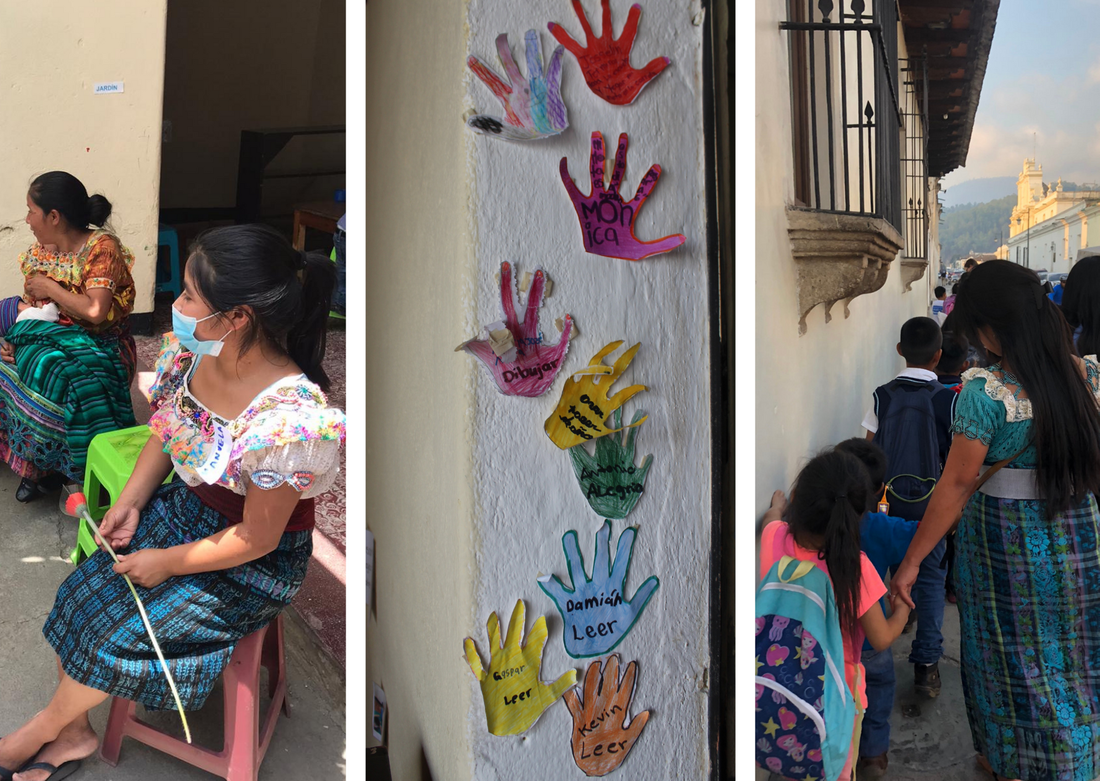|
Vice President Kamala Harris’s recent trip to Guatemala and Mexico was framed as a mission to stem migration by addressing root causes. President Biden intends to continue the Obama-era policy of providing aid to improve people’s lives in Central America so that they don’t feel compelled to make the risky, expensive, and illegal journey to the United States. An examination of past policies and present needs reveals that Sueños is well-prepared to be part of the solution.
Sueños directly addresses a root cause of migration: illiteracy. As Luis von Ahn, the Guatemalan-born founder of DuoLingo, recently explained on NPR, “One of the big reasons why people immigrate is just because there's no great job opportunities. But one of the reasons there's no great job opportunities is because there's low levels of education. And it all starts with being able to read and write.” By focusing on literacy, Sueños improves the chances that street vendors’ kids will be able to live with dignity at home rather than fleeing northward. Sueños is a lean organization that uses all of its funds to further our mission. According to a recent report in the New York Times, the majority of U.S. aid money goes to American companies that end up using much of it for “salaries, expenses and profits, often before any services are delivered.” Although Sueños is small, its structure ensures that programming is based on a grassroots understanding of community needs. The Times describes several pricey, poorly planned programs such as constructing outhouses which were “quickly abandoned or torn apart for scrap metal.” Another effort involved creating an app to track local government spending even though “many residents didn’t have smartphones, and they couldn’t afford to pay for the data to use the app even if they did.” Furthermore, Sueños works with members of the K’iche community. According to a 2021 Brookings Institution report, “In Guatemala, especially, poverty is a major driver of migration. This is particularly acute among indigenous populations, who suffer from higher rates of malnutrition and insufficient access to health care and education. In Guatemala, the exploitation of indigenous groups, including suspected human rights abuses, has exacerbated income inequality.” Stemming migration is a complex challenge, and a small organization like Sueños cannot eliminate government corruption, end the drug trade, or erase the appeal of the U.S. as a land of opportunity. Sueños can, however, make a positive difference and is well-placed to fulfill the role described in a Vox article: “The best way for the U.S. to help, experts say, is to support the civil society organizations and local groups on the ground that are already working to improve their societies — find the organizations or activists that are doing the right things and that are effective (or have the potential to be) and help them succeed.” As Sueños applies for grant funding and Friends of Sueños seeks additional support from individual donors, we should highlight how our work in Antigua fits into the bigger picture of the relationship between the United States and Guatemala.
0 Comments
Leave a Reply. |
Archives
May 2024
Categories |
Friends of Sueños is a 501(c)(3) nonprofit, EIN #83-1995328. All donations are tax deductible.
Please mail your checks to 308 East Lancaster Ave (suite 235), Wynnewood, PA, 19096
Please mail your checks to 308 East Lancaster Ave (suite 235), Wynnewood, PA, 19096
© Friends of Suenos. All rights reserved.


 RSS Feed
RSS Feed